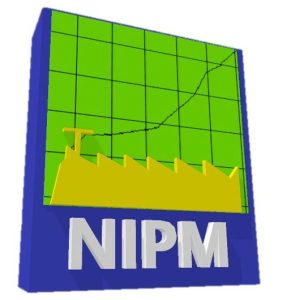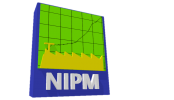The Hydrocarbon Value Chain: Role of Nigerian Institute of Production Management- NIPM Nigeria
Conceptually, a value chain is a business model for the description of the stages a product or service go through right from its conception, design and creation to customer delivery.
The Hydrocarbon Value Chain: Role of Nigerian Institute of Production Management- NIPM Nigeria

By
Dr. Olaniyi Opanuga, FNIPM
Faculty Lead, Nigerian Institute of Production Management (NIPM Nigeria)
Introduction
Conceptually, a value chain is a business model for the description of the stages a product or service go through right from its conception, design and creation to customer delivery. It can be regarded as a schematic of production and customer fulfillment processes. It involves the sequence of operations undertaken by an organization to create and deliver value to its customers in the form of goods and services. How inputs are transformed into outputs and how outputs (goods and/or services get to the customer typify value chain.
The hydrocarbon value chain refers to the series of processes involved in the exploration, production, refining, marketing, and distribution of hydrocarbons, which are the main components of petroleum and natural gas.
This value chain involves a series of interdependent operations and business processes that require appropriate planning, policy, strategies and decisions.
■ Stage 1: Exploration
Exploration involves searching for potential oil and gas reserves. This stage includes:
- Seismic surveys: Using seismic waves to create images of underground rock formations.
- Drilling exploratory wells: Drilling wells to collect data on the subsurface geology.
- Geological and geophysical analysis: Analyzing data to identify potential hydrocarbon-bearing formations.
The goal of exploration is to identify potential hydrocarbon reserves and assess their viability.
■ Stage 2: Production
Production involves extracting hydrocarbons from the ground. This stage includes:
- Drilling production wells: Drilling wells to access the hydrocarbon- bearing formations.
- Well completion: Preparing the well for production by installing necessary equipment.
- Production operations: Managing the flow of hydrocarbons from the well to the surface.
The goal of production is to extract hydrocarbons safely and efficiently.
■ Stage 3: Processing
Processing involves separating and treating the extracted hydrocarbons. This stage includes:
- Separation: Separating oil, gas, and water from the extracted hydrocarbons.
- Treatment: Removing impurities and contaminants from the hydrocarbons.
- Stabilization: Stabilizing the hydrocarbons to prevent degradation during transport.
The goal of processing is to prepare the hydrocarbons for transportation and refining.
■ Stage 4: Refining
Refining involves converting crude oil into various petroleum products. This stage includes:
- Crude oil distillation: Separating crude oil into different fractions based on boiling point.
- Conversion processes: Converting heavy fractions into lighter, more valuable products.
- Product blending: Blending refined products to meet specific market requirements.
The goal of refining is to produce a range of petroleum products, including gasoline, diesel, jet fuel, and lubricants.
■ Stage 5: Marketing
Marketing involves selling and trading petroleum products. This stage includes:
- Market analysis: Analyzing market trends and demand for petroleum products.
- Pricing: Setting prices for petroleum products based on market conditions.
- Sales: Selling petroleum products to customers, including Distributors, Wholesalers, Retailers, and end-users.
The goal of marketing is to maximize revenue and market share for petroleum products.
Distribution
Distribution involves transporting petroleum products to consumers. This stage includes:
- Pipeline transportation: Transporting petroleum products through pipelines.
- Marine transportation: Transporting petroleum products by sea.
- Truck and rail transportation: Transporting petroleum products by truck and rail.
- Retail and wholesale distribution: Delivering petroleum products to wholesalers and retailers.
The goal of distribution is to deliver petroleum products safely and efficiently to consumers.
ABOUT NIPM Nigeria
Nigerian Institute of Production Management (NIPM Nigeria) is a professional body that regulates and fosters standards of Production and Operations (including petroleum operations) Management in Nigeria. Oil and Gas Production and Operations Management is part of Energy Production and Operations Management. By energy production and operations, we refer to the entire industry covering electricity, oil, and gas.
The energy sector is a vast driver of industrial growth, comprising both renewable and non-renewable sources, including hydroelectric power, solar, nuclear, wind, coal, natural gas, and petroleum products. NIPM Nigeria is chiefly concerned with the energy production and supply chain operations management education and training, including the processes of:
– Extraction or Generation
– Storage and Warehousing
– Transportation
– Distribution
– Utilization
– Environmental impact/HSE
– Operational efficiency
– Productivity
– Maintainability, Reliability and Sustainability.
PETROLEUM OPERATIONS TRAINING INSTITUTE (POTI)
The Petroleum Operations Training Institute, also known as the Centre for Oil and Gas Operations Management Studies (COGOMS), was established to provide education and training for professional development and career growth of managers and employees in the upstream, midstream, and downstream segments of the Oil and Gas Industry.
SOCIETY OF PETROLEUM PRODUCTION and OPERATIONS MANAGEMENT (SPEPOM)
There is a specialized arm of Nigerian Institute of Production Management called SPEPOM – Society of Petroleum Production and Operations Management, which focuses on membership and professional networking programs.
SPEPOM provides an avenue for professionals in the oil and gas industry to connect, share knowledge, and apply best practices in their workplaces.
HOW NIPM SUPPORTS THE OIL AND GAS INDUSTRY
Nigerian Institute of Production Management is playing a critical role in the Nigeria’s oil and gas industry by designing and implementing professional education, training, certification, manpower and membership development programmes aimed at driving exceptional performance while building and strengthening capacity of the workforce for higher productivity.
At NIPM Nigeria, we recognize the critical role that the oil and gas industry plays in the Nigerian economy. To support the industry, we offer a range of services and training programs that cater to the needs of professionals and organizations operating in the hydrocarbon value chain with a view to achieving operational excellence.
Exploration Stage:
– Provide training on seismic data interpretation and geological analysis
– Offer certification programs in exploration and production management
– Conduct workshops on best practices in exploration operations, enterprise risk management, HSE operations, regulatory compliance and environmental protection
Production Stage:
– Deliver training on well drilling and completion operations
– Provide certification programs in production operations management
– Conduct seminars on optimizing production efficiency, operational risk management
Processing Stage:
– Offer training on process engineering and operations
– Provide certification programs in processing and refining operations management
– Conduct workshops on process optimization and troubleshooting, maintenance, operational excellence.
Refining Stage:
– Deliver training on refining operations and processes
– Provide certification programs in refining operations management
– Conduct seminars on refining optimization and yield improvement, re-engineering.
Marketing Stage:
– Offer training on marketing and sales operations
– Provide certification programs in marketing and sales management
– Conduct workshops on market analysis and pricing strategies
Distribution Stage:
– Deliver training on transportation, shipping, port and terminal operations, pipeline operations and maintenance, depot operations management, warehousing, logistics and supply chain management
– Provide certification programs in distribution operations and customer service management
– Conduct seminars on optimizing distribution efficiency and safety
By partnering with NIPM Nigeria, organizations and individuals can access world-class training and development opportunities, helping to drive growth, efficiency, and sustainability in the oil and gas industry.
Our programs and training courses are designed to equip professionals with the knowledge, skills, and competencies required to excel in the oil and gas industry. We also provide certification programs that recognize individuals’ expertise and commitment to the profession.
At NIPM Nigeria, we are committed to supporting the growth and development of the oil and gas industry in Nigeria.
We believe that our training programs and certification services can play a critical role in building the capacity of professionals and organizations operating in the industry.
CONTACT US TODAY!
Have a chat with us today and let’s strike a mutually beneficial partnership deal.
Tel./WhatsApp Message: 08023140750, 08069006671.
For Training & Membership
The Registrar
Nigeria Institute of Production Management
Acme House, 23, Acme Road,
Ogba Industrial Estate,
P.O. Box 7798, Ikeja, Lagos, Nigeria
Tel: 08023140750

Leave a Reply